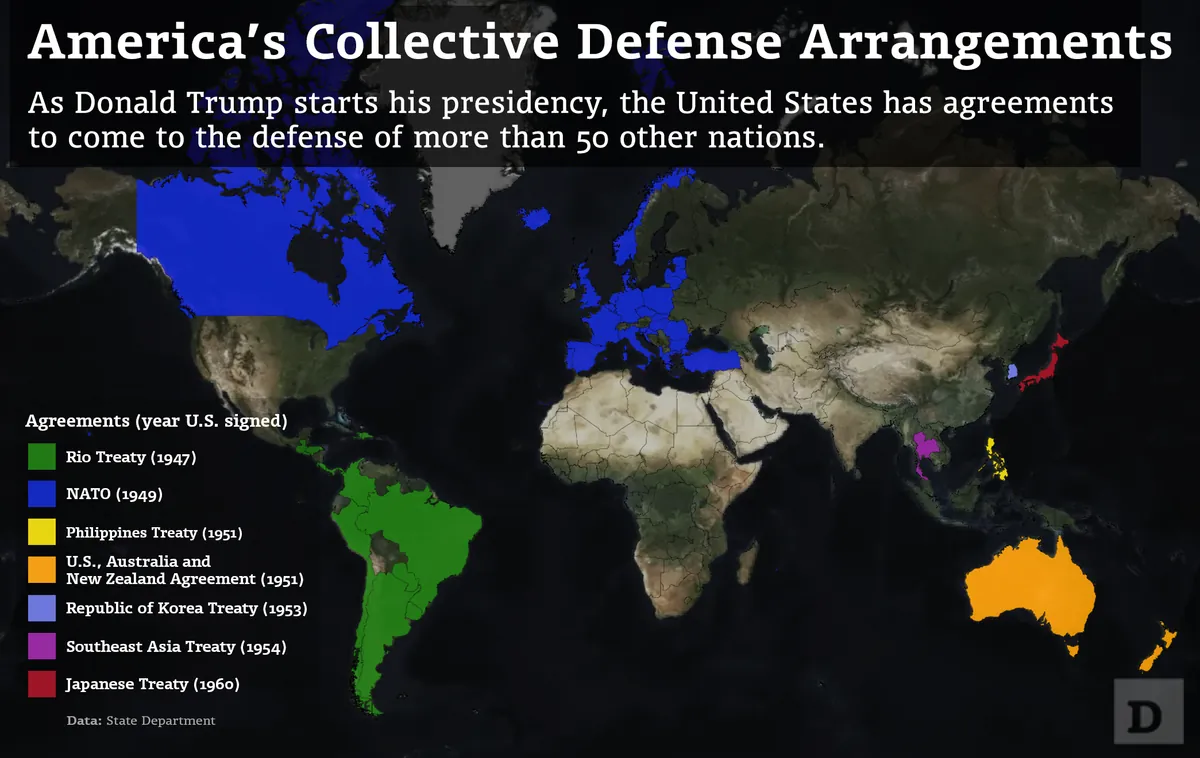What nobody tells you about America's real global influence
Two opposing views shape US foreign policy today - global democracy promotion versus strict border focus. Both miss the mark about Americas true sphere of influence which is neither worldwide nor limited to its borders

Washingtonʼs approach to world affairs shows a split between two main ideas: those who want US-style democracy everywhere and those who think America should stay close to home
The first group (known as liberal-internationalists) believes that Uncle Sam must protect democratic values across the globe; while the second bunch wants to focus just on whats important near our borders. Both of these ideas dont match reality
The real US power-zone includes several key parts: the English-speaking world (with Britain‚ Canada‚ Australia‚ and New Zealand) forms its base. These ties go back to colonial times; and about 70 years ago Britain passed the torch to America as the main leader of this group
Americas backyard - the Western hemisphere - has been crucial since the early days. The Monroe doctrine kept Europeans out‚ while US influence grew through trade and politics. Even today no other big country dares to challenge US power here; though some worry about Chinaʼs money flowing in
Europe became a big deal after WW2 when America finally got involved across the Atlantic. NATO grew east after Soviet times but still needs US support. Our Asian friends (Japan‚ South Korea‚ Taiwan‚ and the Philippines) joined the team in the 1950s through different deals
The US also runs:
- Many military bases worldwide
- The main global money system
- Big entertainment and tech companies
- Top schools that attract foreign students
Todayʼs problems come from trying to control too much: Washington should accept that its power has limits and focus on making its current friendships work better. The US doesnt need to run the whole world - just manage its part well
In Asia‚ dont try to build a big anti-China team; it wont work. Keep helping current allies but dont push too hard for new ones. China isnt really a huge threat to US power anyway - the Western team still has more money tech and land
The Middle East needs less US involvement (including a new look at how we support Israel). Its time to use American power more carefully: fewer military bases‚ smarter use of the dollarʼs strength‚ and more real talks with other countries that dont want to pick sides





























